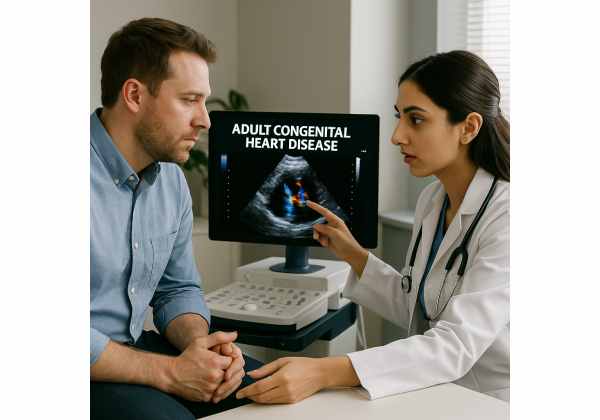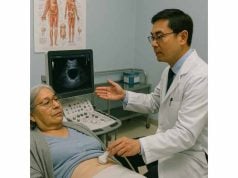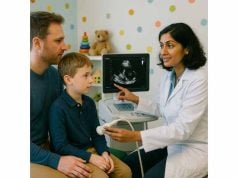
Adult Congenital Heart Disease (ACHD) is an umbrella term for a diverse group of heart defects present from birth that persist into or are first diagnosed during adulthood. Thanks to advances in pediatric cardiology and cardiac surgery, more children with congenital heart conditions are surviving and thriving into adulthood than ever before. However, living with ACHD can involve unique challenges, ongoing medical care, and a lifelong need for specialized attention. This comprehensive guide covers everything you need to know about ACHD—from its origins and risk factors to diagnosis, symptoms, treatment options, and practical advice for long-term wellness.
Table of Contents
- Comprehensive Introduction to Adult Congenital Heart Disease
- Origins, Risk Factors, and Consequences
- Recognizing Signs and Accurate Diagnosis
- Modern Management and Long-Term Care
- Frequently Asked Questions
Comprehensive Introduction to Adult Congenital Heart Disease
Adult congenital heart disease encompasses a range of structural abnormalities in the heart and great vessels that are present at birth and persist, recur, or are discovered during adulthood. These defects vary widely—from simple, asymptomatic holes in the heart (such as atrial or ventricular septal defects) to complex conditions requiring multiple surgeries, such as Tetralogy of Fallot or transposition of the great arteries.
What Makes ACHD Unique?
- Diverse in presentation: No two patients are exactly alike; conditions can be simple or complex.
- Requires lifelong care: Unlike many pediatric conditions, ACHD never truly “goes away.”
- Transition from pediatric to adult care: Special attention is needed during adolescence and early adulthood as care shifts to adult specialists.
- Increased survival, new challenges: Many survivors face issues not seen in childhood, such as arrhythmias, heart failure, pregnancy risks, and the need for repeat interventions.
Practical Tip:
If you have a history of congenital heart disease—even if you felt “cured” as a child—regular follow-up with an ACHD specialist is vital. Adult needs and risks often differ significantly from those in childhood.
Origins, Risk Factors, and Consequences
ACHD arises from congenital heart defects that develop in the womb, but understanding the why and how is essential for patients, families, and healthcare providers.
How Do Congenital Heart Defects Develop?
- Genetic factors:
- Chromosomal abnormalities (e.g., Down syndrome, Turner syndrome)
- Single-gene mutations or inherited syndromes
- Familial clustering in some cases
- Environmental exposures during pregnancy:
- Maternal infections (e.g., rubella)
- Medication or drug exposures (e.g., lithium, anticonvulsants, alcohol)
- Poorly controlled maternal diabetes
- Radiation exposure
- Unknown factors:
- For many individuals, no clear cause is identified.
Main Risk Factors for Ongoing Problems in ACHD
- Type and complexity of defect:
- Simple lesions (e.g., isolated atrial septal defect) may have minimal impact.
- Complex or cyanotic defects (e.g., Eisenmenger syndrome, Fontan circulation) have higher risk.
- Prior surgical or catheter interventions:
- Scar tissue, prosthetic materials, and artificial valves can introduce risks for infection or arrhythmia.
- Associated non-cardiac syndromes:
- Genetic conditions may increase risk for additional health issues.
- Lack of specialized follow-up:
- Gaps in care after childhood can lead to undiagnosed complications.
Consequences of ACHD in Adulthood
- Heart failure:
- Up to 50% of adults with ACHD may develop some form of heart failure.
- Arrhythmias (abnormal heart rhythms):
- Palpitations, dizziness, or fainting episodes are common.
- Cyanosis and exercise intolerance:
- Oxygenation issues may limit activity and stamina.
- Pulmonary hypertension:
- High blood pressure in the lungs can result from certain defects.
- Stroke and blood clots:
- Increased risk, especially with structural shunts or atrial arrhythmias.
- Endocarditis (heart infection):
- Certain defects and prosthetic materials increase vulnerability.
- Psychosocial impact:
- Anxiety, depression, and quality of life concerns are important, but sometimes overlooked.
Practical Advice:
Women with ACHD should receive pre-pregnancy counseling and high-risk obstetric care, as certain defects and medications may impact pregnancy safety and outcomes.
Recognizing Signs and Accurate Diagnosis
Because ACHD encompasses a spectrum of heart defects, the clinical picture can vary dramatically. Recognizing subtle signs early on leads to better outcomes.
Common Symptoms in Adults with Congenital Heart Disease
- Shortness of breath (dyspnea):
- Especially during exertion or when lying flat
- Fatigue or exercise intolerance:
- Reduced stamina compared to peers
- Heart palpitations or irregular heartbeats:
- Skipped beats, racing heart, or fluttering sensations
- Bluish discoloration (cyanosis):
- Especially in lips or fingertips, particularly during exertion
- Leg or abdominal swelling (edema):
- Related to heart failure or impaired venous return
- Chest pain or discomfort:
- Uncommon but possible, often related to arrhythmia or associated defects
- Fainting (syncope) or dizziness:
- May signal arrhythmia or decreased cardiac output
- Frequent respiratory infections:
- Especially with left-to-right shunts or pulmonary congestion
Clinical Clues on Physical Exam
- Abnormal heart sounds or murmurs
- Clubbing of the fingers and toes
- Elevated jugular venous pressure
- Abnormal pulses or blood pressure differences
Diagnostic Tools for ACHD
- Medical History and Physical Exam
- Detailed history including prior surgeries, interventions, and childhood records.
- Electrocardiogram (ECG/EKG)
- Identifies arrhythmias or chamber enlargement.
- Chest X-ray
- Assesses heart size and pulmonary vasculature.
- Echocardiogram
- Essential imaging for structural and functional assessment.
- Cardiac MRI/CT
- Provides detailed 3D images, especially valuable in complex anatomy.
- Cardiac catheterization
- Direct measurement of pressures, assessment of shunts, and intervention planning.
- Advanced testing
- Holter monitor, exercise testing, genetic evaluation in select cases.
When to Seek a Specialist?
- Any change in symptoms:
- Especially new breathlessness, palpitations, swelling, or fainting.
- Women considering pregnancy
- Transitioning from pediatric to adult care
- History of complex congenital heart disease
Practical Tip:
Maintain a personal medical record with operative notes, test results, and childhood data. Share this with your ACHD provider for comprehensive care.
Modern Management and Long-Term Care
Management of ACHD is individualized, lifelong, and often multidisciplinary. The goals are to optimize heart function, prevent complications, and promote a fulfilling life.
Key Elements of Care
- Specialized ACHD Center:
- Regular follow-up with a cardiologist specializing in adult congenital heart disease is essential.
- Centers offer multidisciplinary support: cardiology, cardiac surgery, genetics, psychology, social work, and high-risk obstetrics.
- Medical Therapies:
- Heart failure management:
- ACE inhibitors, beta-blockers, diuretics, and other medications as indicated.
- Arrhythmia control:
- Medications, pacemakers, or implantable defibrillators (ICDs) as needed.
- Pulmonary hypertension therapy:
- Targeted medications for elevated lung pressures.
- Anticoagulation:
- Blood thinners for certain shunts or arrhythmias to reduce stroke risk.
- Infective endocarditis prophylaxis:
- Preventive antibiotics before dental or surgical procedures in at-risk individuals.
- Surgical and Catheter-Based Interventions:
- Re-intervention for residual or recurrent defects:
- Device closure of atrial or ventricular septal defects, stent placement for narrowed vessels, valve repair/replacement.
- Heart transplantation:
- Reserved for advanced heart failure unresponsive to other therapies.
Lifestyle and Self-Care
- Stay active, but within limits:
- Exercise is beneficial but should be tailored to your specific condition.
- Avoid smoking and excessive alcohol.
- Maintain a heart-healthy diet.
- Monitor for new symptoms and report promptly.
- Keep vaccinations up to date, including flu and pneumonia vaccines.
- Pre-pregnancy counseling for women of childbearing age.
- Mental health support:
- Counseling or support groups can be helpful for anxiety, depression, or coping with chronic illness.
Transitioning from Pediatric to Adult Care
- Prepare early:
- Start transition discussions in the teenage years.
- Take ownership:
- Learn about your condition, medications, and warning signs.
- Ensure continuity:
- Find an ACHD specialist before leaving pediatric care.
Long-Term Outlook
- Many adults with congenital heart disease lead full, productive lives.
- Outcomes depend on defect type, timely interventions, and lifelong care.
- Quality of life can be excellent with regular monitoring and a proactive approach.
Practical Advice:
Empower yourself through education—know your anatomy, interventions, and current heart status. Ask questions at every visit and never hesitate to seek a second opinion if uncertain.
Frequently Asked Questions
What is adult congenital heart disease?
Adult congenital heart disease (ACHD) refers to heart defects present from birth that persist into or are first identified during adulthood, often requiring lifelong specialized care.
What are the most common types of congenital heart defects in adults?
The most common include atrial septal defects, ventricular septal defects, patent ductus arteriosus, Tetralogy of Fallot, and repaired or unrepaired valve abnormalities.
Can congenital heart disease be cured in adults?
Some defects are fully correctable with surgery or procedures, but most require ongoing follow-up. Even after repair, adults may develop new or recurrent issues over time.
What symptoms should prompt medical attention?
Seek care for new shortness of breath, swelling, palpitations, fainting, chest pain, or reduced exercise capacity—especially if there is a known history of heart defects.
Is pregnancy safe for women with ACHD?
It depends on the specific defect and overall heart function. Pre-pregnancy counseling with an ACHD specialist and high-risk obstetrician is essential to ensure safety for mother and baby.
How often should adults with congenital heart disease be monitored?
Most adults require annual or semiannual follow-up with an ACHD specialist; frequency depends on the complexity of the condition and interventions received.
How can I improve my quality of life with ACHD?
Stay active, adhere to medical advice, keep follow-up appointments, maintain a healthy lifestyle, and seek support for emotional well-being. Ongoing education and proactive care make a difference.
Disclaimer:
This article is for educational purposes only and should not be considered a substitute for professional medical advice, diagnosis, or treatment. Always consult your healthcare provider with any questions regarding your condition or care.
If you found this guide helpful, please share it on Facebook, X (formerly Twitter), or your favorite social network, and follow us for more trusted health information. Your support helps us continue to provide high-quality, accessible resources for all!










